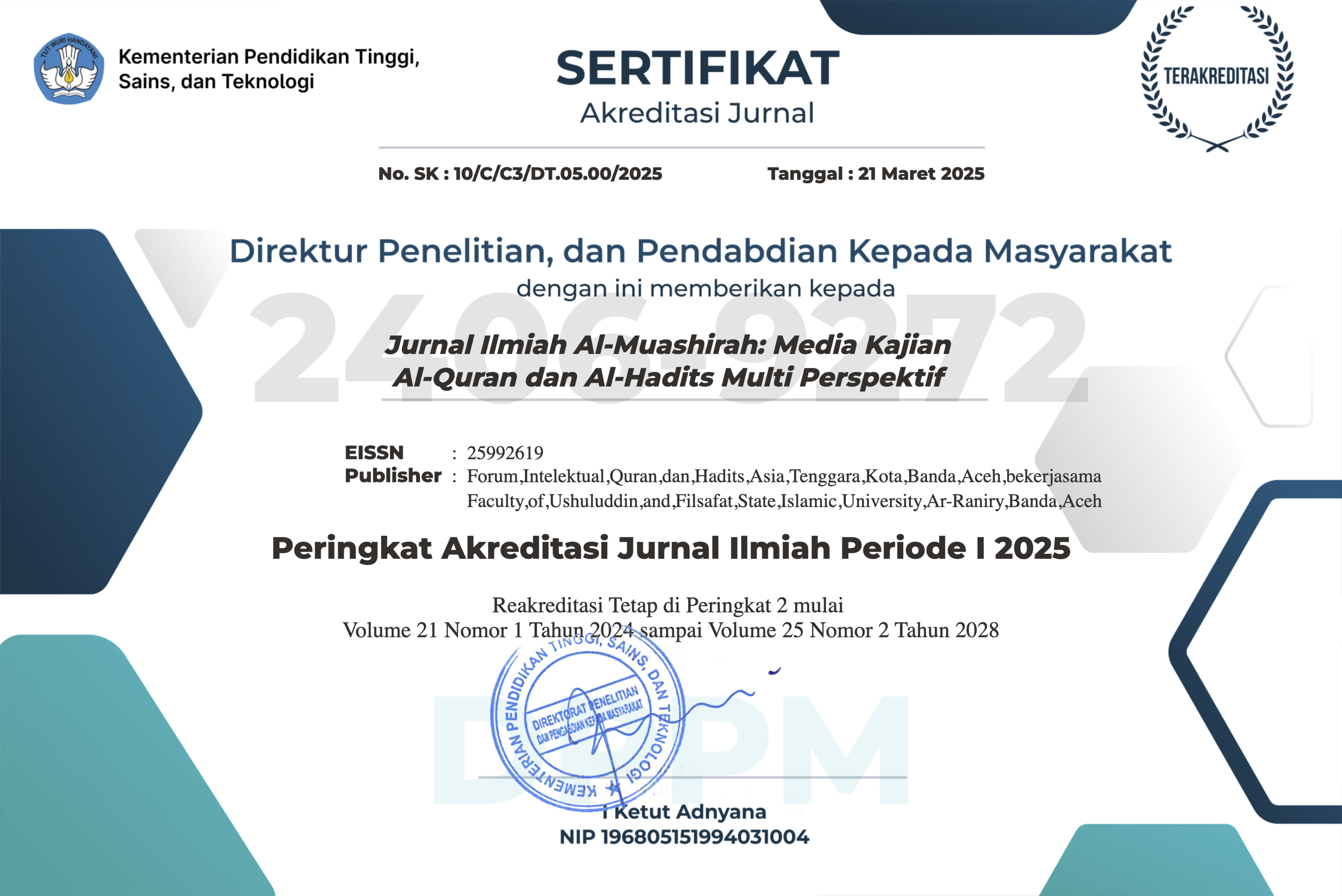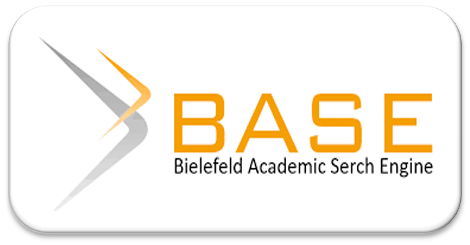Wealth in the Perspectives of the Quran
DOI:
https://doi.org/10.22373/jim.v20i2.18725Keywords:
Quran, Wealth, PerspectivesAbstract
Wealth is a matter of great urgency in human life, and it is not surprising that everyone needs it. Many people are even preoccupied with accumulating wealth without caring whether it is rightfully obtained or not. The Quran itself, as the guidance for Muslims, extensively discusses the concept of wealth. Therefore, this article aims to uncover the Quran's perspective on the essence of wealth, its acquisition, and its utilization by examining and analyzing the writings of Quranic scholars through a qualitative descriptive approach. The expected outcome is to enhance our comprehensive understanding of wealth and enable us to implement it correctly and responsibly in real life. In general, wealth in the Quranic view is inherently linked to two aspects: a gift and trust from Allah that should be appreciated, and a trial that must be approached with caution. This is because wealth not only has the potential to positively impact the owner's future (afterlife), but can also have negative consequences. Hence, it requires high knowledge and awareness regarding its acquisition and utilization.
Downloads
References
`Arabi, Ibnu, Ahkam Al-Quran, 1st edn (Beirut: Dar al-Fikr, 1984)
Al-`Askari, Abu Hilal, Al-Furuq Al-Lughawiyyah (Beirut: Dar al- Kutub al-’Ilmiyyah, 2018)
Al-Muqaddasi, Zadah Faidhullah al-Hasani, Fath Al-Rahman Li Thalib Ayat Al-Quran (Beirut: Dar al- Kutub al-’Ilmiyyah, 2012)
Al-Qaththan, Manna, Mabahis Fi Ulumi Al-Qur’an (Maktabah al-Ma’arif, 2000)
Al-Qurthubi, Imam, Tafsir Al-Qurthubi (Jakarta: Pustaka Azzam, 2007)
Al-Syathibi, Al-Muwafaqat Fi Ushul Al-Ahkam, 2nd edn (Beirut: Dar al-Fikr)
Al-Thahawi, Ibrahim, Al-Iqtishad Al-Islami (Cairo: Dar al-Kutub, 1974)
Al-Zuhaili, Wahbah, Al-Fiqh Al-Islami Wa Adillatuhu, 4th edn (Beirut: Dar al-Fikr, 2005)
Ash-Shiddieqy, Muhammad Hasbi, Falsafah Hukum Islam (Semarang: Pustaka Zikra Putra, 2001)
Asnaini, Asnaini, and Riki Aprianto, ‘KEDUDUKAN HARTA DAN IMPLIKASINYA DALAM PERSPEKTIF AL-QUR’AN DAN HADIS’, Al-Intaj : Jurnal Ekonomi Dan Perbankan Syariah, 5.1 (2019), 15 <https://doi.org/10.29300/aij.v5i1.1713>
Az-Zuhaili, Wahbah, Al-Quran Menjawab Tantangan Zaman (Jakarta Selatan: Mustaqim, 2002)
Hadija, Siti, and Nandang Ihwanuddin, ‘Filosofi Dan Kedudukan Harta Dalam Islam’, Ad-Da`wah, 19.02 (2021) <https://doi.org/https://doi.org/10.59109/addawah.v19i02.7>
Hasan, Ahmad, Mata Uang Islami Telaah Komprehensif Sistem Keuangan Islami (Jakarta: PT.Raja Grafindo Persada, 2005)
Ibrahim, Abdullah Lam bin, Fiqih Finansial (Solo: Era Intermedia, 2005)
Musa, Muhammad Yusuf, Al-Amwal Wa Nadzariyatu Al-`Aqdi Fi Al-Fiqhi Al-Islami (Cairo: Dar al-Fikr, 1987)
Qardhawi, Yusuf, Peran Nilai Dan Moral Dalam Perekonomian Islam (Jakarta: Rabbani Pres, 2001)
Shihab, M. Quraish, Tafsir Al-Mishbah: Pesan, Kesan Dan Keserasian Al-Quran (Jakarta: Lentera Hati, 2001)
Downloads
Published
Issue
Section
License
Authors who publish in Jurnal Ilmiah Al-Mu'ashirah agree to the following terms:
- Authors retain copyright and grant the journal right of first publication with the work simultaneously licensed under a Attribution-ShareAlike 4.0 International (CC BY-SA 4.0) License that allows others to share the work with an acknowledgment of the work's authorship and initial publication in this journal.
- Authors are able to enter into separate, additional contractual arrangements for the non-exclusive distribution of the journal's published version of the work (e.g., post it to an institutional repository or publish it in a book), with an acknowledgment of its initial publication in this journal.
- Authors are permitted and encouraged to post their work online (e.g., in institutional repositories or on their website) prior to and during the submission process, as it can lead to productive exchanges, as well as earlier and greater citation of published work (See The Effect of Open Access).













